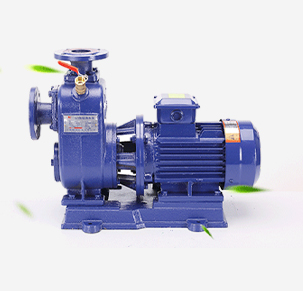Estonian
- Afrikaans
- Albanian
- Amharic
- Arabic
- Armenian
- Azerbaijani
- Basque
- Belarusian
- Bengali
- Bosnian
- Bulgarian
- Catalan
- Cebuano
- Corsican
- Croatian
- Czech
- Danish
- Dutch
- English
- Esperanto
- Estonian
- Finnish
- French
- Frisian
- Galician
- Georgian
- German
- Greek
- Gujarati
- Haitian Creole
- hausa
- hawaiian
- Hebrew
- Hindi
- Miao
- Hungarian
- Icelandic
- igbo
- Indonesian
- irish
- Italian
- Japanese
- Javanese
- Kannada
- kazakh
- Khmer
- Rwandese
- Korean
- Kurdish
- Kyrgyz
- Lao
- Latin
- Latvian
- Lithuanian
- Luxembourgish
- Macedonian
- Malgashi
- Malay
- Malayalam
- Maltese
- Maori
- Marathi
- Mongolian
- Myanmar
- Nepali
- Norwegian
- Norwegian
- Occitan
- Pashto
- Persian
- Polish
- Portuguese
- Punjabi
- Romanian
- Russian
- Samoan
- Scottish Gaelic
- Serbian
- Sesotho
- Shona
- Sindhi
- Sinhala
- Slovak
- Slovenian
- Somali
- Spanish
- Sundanese
- Swahili
- Swedish
- Tagalog
- Tajik
- Tamil
- Tatar
- Telugu
- Thai
- Turkish
- Turkmen
- Ukrainian
- Urdu
- Uighur
- Uzbek
- Vietnamese
- Welsh
- Bantu
- Yiddish
- Yoruba
- Zulu
Telephone: +86 13120555503
Email: frank@cypump.com
nov. . 16, 2024 04:34 Back to list
sewer injection pump
Understanding Sewer Injection Pumps Essential Tools for Wastewater Management
Sewer injection pumps play a vital role in the efficient management of wastewater systems, ensuring that waste is transported seamlessly from residential and commercial locations to treatment facilities. These specialized pumps are designed to handle the challenging task of moving sewage, stormwater, and other waste materials, making them indispensable in modern sanitation infrastructure.
What is a Sewer Injection Pump?
A sewer injection pump is a type of centrifugal pump specifically designed to elevate wastewater from lower to higher elevations, especially in systems where the natural flow is not sufficient due to gravity alone. Instead of relying solely on gravity to transport sewage, these pumps inject the sewage into pressurized sewer lines that convey the waste to treatment facilities.
How Does It Work?
The operational mechanism of a sewer injection pump is straightforward. The pump utilizes a motor that drives an impeller, creating a centrifugal force that propels the wastewater through the pump and into the sewer pipeline. This technology allows the pump to move materials containing solids, oils, and other debris that would typically clog standard pumps or sewer systems. Some models come equipped with grinders and shredders that help break down larger solids before they enter the pump, enhancing its efficiency and lifespan.
Applications and Importance
Sewer injection pumps are widely used in various applications, including
1. Residential Applications In homes situated in low-lying areas where gravity-based drainage is impractical, these pumps are essential to ensure safe and efficient sewage disposal. 2. Commercial Use Businesses, especially those generating significant wastewater volumes, like restaurants, hotels, and industrial facilities, rely on these pumps to maintain smooth operations and comply with environmental regulations.
sewer injection pump

Benefits of Sewer Injection Pumps
1. Efficiency By moving wastewater efficiently across varying elevations, sewer injection pumps minimize the risk of blockages and backups, ensuring a reliable sewage disposal system.
2. Protection Against Contamination By effectively transporting sewage, these pumps help reduce the risk of untreated waste entering local water bodies, contributing to public health and environmental safety.
3. Adaptability These pumps are adaptable to diverse installations and can be used with various pipe diameters and configurations, making them suitable for both new projects and retrofitting existing systems.
4. Durability Designed to withstand harsh conditions, quality sewer injection pumps are often constructed with corrosion-resistant materials. This durability ensures that they can operate effectively over extended periods, reducing maintenance requirements.
Maintenance and Care
Regular maintenance is crucial for the longevity and performance of sewer injection pumps. Ensuring that the pump is free from debris, checking the motor functions, and monitoring for any unusual noises can help prevent breakdowns. Scheduled professional inspections can also catch potential issues before they escalate, ensuring consistent operation.
Conclusion
In conclusion, sewer injection pumps are integral to modern wastewater management systems. Their ability to efficiently transport sewage not only safeguards public health but also protects the environment. As urbanization continues to increase, the importance of reliable sewer infrastructure, including high-quality sewer injection pumps, will only grow. Investing in the right equipment and regular maintenance can ensure that communities remain clean and safe for years to come.
-
Custom Drilling Mud and Slurry Pump Supplier - High Efficiency, Tailored Solutions
NewsJun.10,2025
-
Supply Vertical Submersible Sewage Pump High-Efficiency WQ/QW Pumps Supplier
NewsJun.10,2025
-
Premium Sewage Ejection System & Pumps Efficient Waste Removal
NewsJun.09,2025
-
Premium Wholesale Slurry Pump Impellers Durable & Efficient Slurry Handling
NewsJun.09,2025
-
Top Sewage Pump Companies Durable Industrial Solutions for Efficiency
NewsJun.09,2025
-
Heavy Duty Slurry Pumps - OEM High Performance & Bulk Wholesale
NewsJun.09,2025










